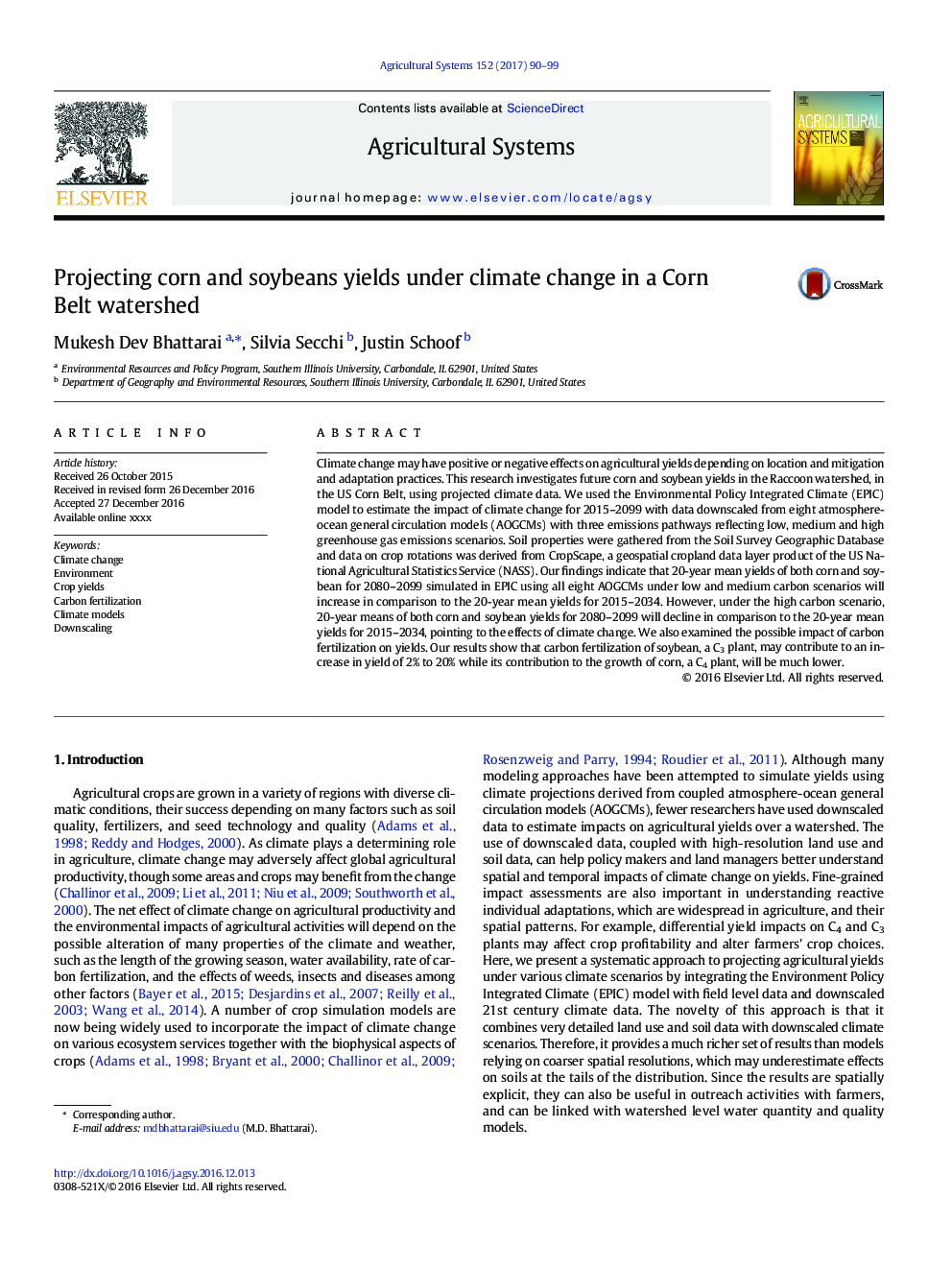| Article ID | Journal | Published Year | Pages | File Type |
|---|---|---|---|---|
| 5759645 | Agricultural Systems | 2017 | 10 Pages |
Abstract
Climate change may have positive or negative effects on agricultural yields depending on location and mitigation and adaptation practices. This research investigates future corn and soybean yields in the Raccoon watershed, in the US Corn Belt, using projected climate data. We used the Environmental Policy Integrated Climate (EPIC) model to estimate the impact of climate change for 2015-2099 with data downscaled from eight atmosphere-ocean general circulation models (AOGCMs) with three emissions pathways reflecting low, medium and high greenhouse gas emissions scenarios. Soil properties were gathered from the Soil Survey Geographic Database and data on crop rotations was derived from CropScape, a geospatial cropland data layer product of the US National Agricultural Statistics Service (NASS). Our findings indicate that 20-year mean yields of both corn and soybean for 2080-2099 simulated in EPIC using all eight AOGCMs under low and medium carbon scenarios will increase in comparison to the 20-year mean yields for 2015-2034. However, under the high carbon scenario, 20-year means of both corn and soybean yields for 2080-2099 will decline in comparison to the 20-year mean yields for 2015-2034, pointing to the effects of climate change. We also examined the possible impact of carbon fertilization on yields. Our results show that carbon fertilization of soybean, a C3 plant, may contribute to an increase in yield of 2% to 20% while its contribution to the growth of corn, a C4 plant, will be much lower.
Related Topics
Life Sciences
Agricultural and Biological Sciences
Agricultural and Biological Sciences (General)
Authors
Mukesh Dev Bhattarai, Silvia Secchi, Justin Schoof,
